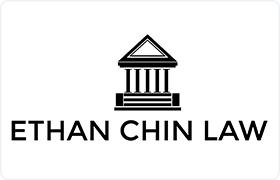 Yermo Credit & Debt Lawyers, California
Yermo Credit & Debt Lawyers, California
Sponsored Law Firm
-
 x
x

Click For More Info:
-
Ethan Chin Law
2400 East Katella Ave. Suite 800 Anaheim, CA 92806» view mapBankruptcy & Debt Passion. Dedication. Care.
We strive our best to provide efficient legal services at low cost so that families can worry less and take their first steps finding a solution to their issues.
800-908-6270
Not enough matches for Yermo Credit & Debt lawyer.
Below are all Yermo Bankruptcy & Debt lawyers.
Lawyers
1-4 of 4 matches
Bankruptcy, Transportation & Shipping, Traffic, Workers' Compensation
Real Estate, Divorce & Family Law, Bankruptcy, Bankruptcy & Debt



 Ethan Chin Anaheim, CA
Ethan Chin Anaheim, CA Practice AreasExpertise
Practice AreasExpertise